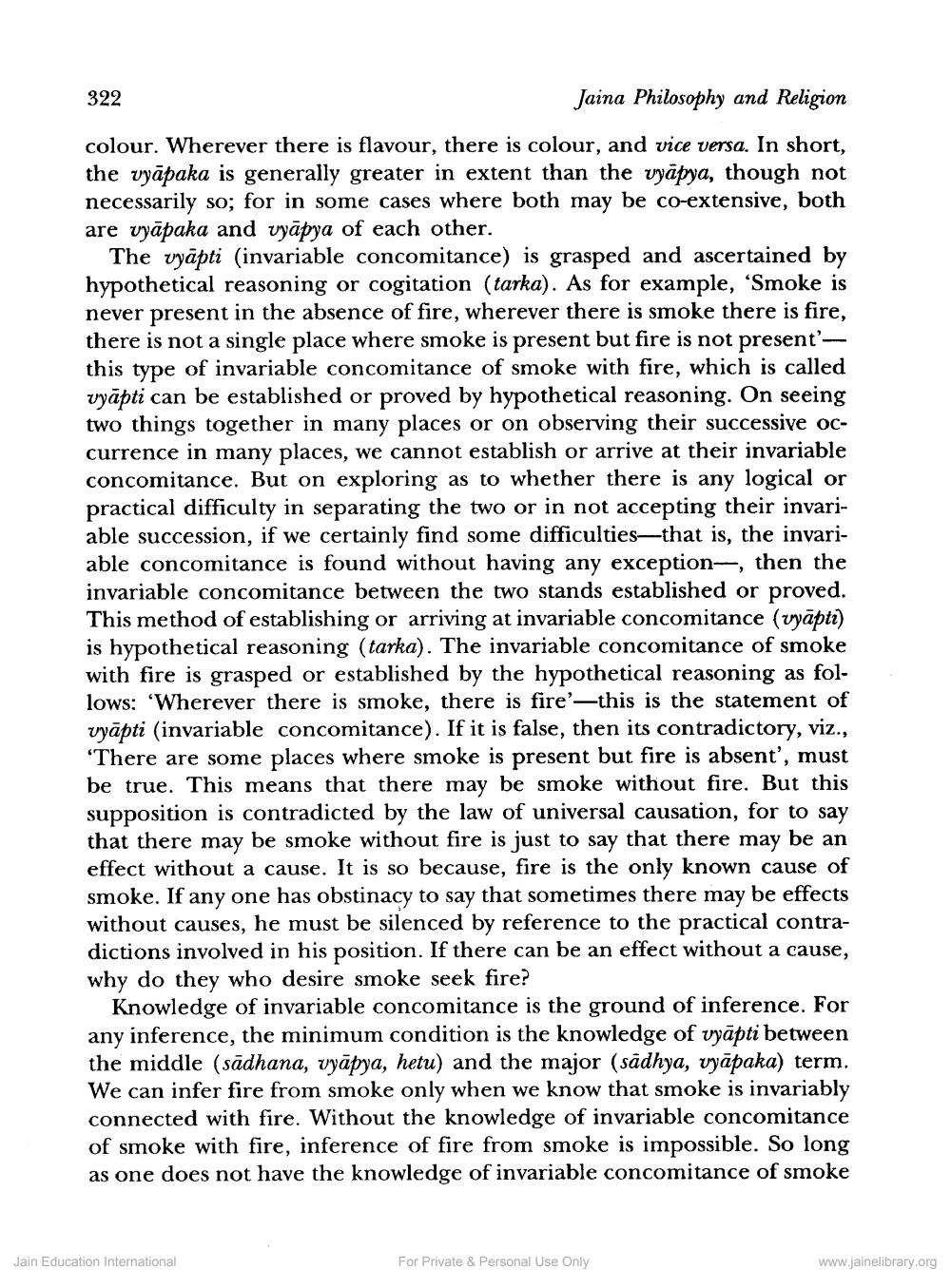________________
322
Jaina Philosophy and Religion
colour. Wherever there is flavour, there is colour, and vice versa. In short, the vyāpaka is generally greater in extent than the vyāpya, though not necessarily so; for in some cases where both may be co-extensive, both are vyāpaka and vyāpya of each other.
The vyāpti (invariable concomitance) is grasped and ascertained by hypothetical reasoning or cogitation (tarka). As for example, "Smoke is never present in the absence of fire, wherever there is smoke there is fire, there is not a single place where smoke is present but fire is not presentthis type of invariable concomitance of smoke with fire, which is called vyāpti can be established or proved by hypothetical reasoning. On seeing two things together in many places or on observing their successive occurrence in many places, we cannot establish or arrive at their invariable concomitance. But on exploring as to whether there is any logical or practical difficulty in separating the two or in not accepting their invariable succession, if we certainly find some difficulties—that is, the invariable concomitance is found without having any exception, then the invariable concomitance between the two stands established or proved. This method of establishing or arriving at invariable concomitance (vyāpti) is hypothetical reasoning (tarka). The invariable concomitance of smoke with fire is grasped or established by the hypothetical reasoning as follows: "Wherever there is smoke, there is fire'—this is the statement of vyāpti (invariable concomitance). If it is false, then its contradictory, viz., ‘There are some places where smoke is present but fire is absent', must be true. This means that there may be smoke without fire. But this supposition is contradicted by the law of universal causation, for to say that there may be smoke without fire is just to say that there may be an effect without a cause. It is so because, fire is the only known cause of smoke. If any one has obstinacy to say that sometimes there may be effects without causes, he must be silenced by reference to the practical contradictions involved in his position. If there can be an effect without a cause, why do they who desire smoke seek fire?
Knowledge of invariable concomitance is the ground of inference. For any inference, the minimum condition is the knowledge of vyāpti between the middle (sādhana, vyāpya, hetu) and the major (sādhya, vyāpaka) term. We can infer fire from smoke only when we know that smoke is invariably connected with fire. Without the knowledge of invariable concomitance of smoke with fire, inference of fire from smoke is impossible. So long as one does not have the knowledge of invariable concomitance of smoke
Jain Education International
For Private & Personal Use Only
www.jainelibrary.org




